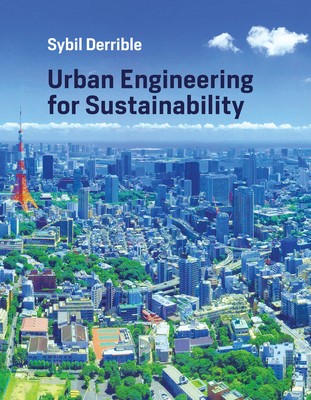
- We will send in 10–14 business days.
- Author: Sybil Derrible
- Publisher: MIT Press
- ISBN-10: 0262553449
- ISBN-13: 9780262553445
- Format: 17.8 x 22.9 x 3.4 cm, minkšti viršeliai
- Language: English
- SAVE -10% with code: EXTRA
Reviews
Description
A textbook that introduces integrated, sustainable design of urban infrastructures, drawing on civil engineering, environmental engineering, urban planning, electrical engineering, mechanical engineering, and computer science. This textbook introduces urban infrastructure from an engineering perspective, with an emphasis on sustainability. Bringing together both fundamental principles and practical knowledge from civil engineering, environmental engineering, urban planning, electrical engineering, mechanical engineering, and computer science, the book transcends disciplinary boundaries by viewing urban infrastructures as integrated networks. The text devotes a chapter to each of five engineering systems--electricity, water, transportation, buildings, and solid waste--covering such topics as fundamentals, demand, management, technology, and analytical models. Other chapters present a formal definition of sustainability; discuss population forecasting techniques; offer a history of urban planning, from the Neolithic era to Kevin Lynch and Jane Jacobs; define and discuss urban metabolism and infrastructure integration, reviewing system interdependencies; and describe approaches to urban design that draw on complexity theory, algorithmic models, and machine learning. Throughout, a hypothetical city state, Civitas, is used to explain and illustrate the concepts covered. Each chapter includes working examples and problem sets. An appendix offers tables, diagrams, and conversion factors. The book can be used in advanced undergraduate and graduate courses in civil engineering and as a reference for practitioners. It can also be helpful in preparation for the Fundamentals of Engineering (FE) and Principles and Practice of Engineering (PE) exams.EXTRA 10 % discount with code: EXTRA
The promotion ends in 23d.22:45:59
The discount code is valid when purchasing from 10 €. Discounts do not stack.
- Author: Sybil Derrible
- Publisher: MIT Press
- ISBN-10: 0262553449
- ISBN-13: 9780262553445
- Format: 17.8 x 22.9 x 3.4 cm, minkšti viršeliai
- Language: English English


Reviews